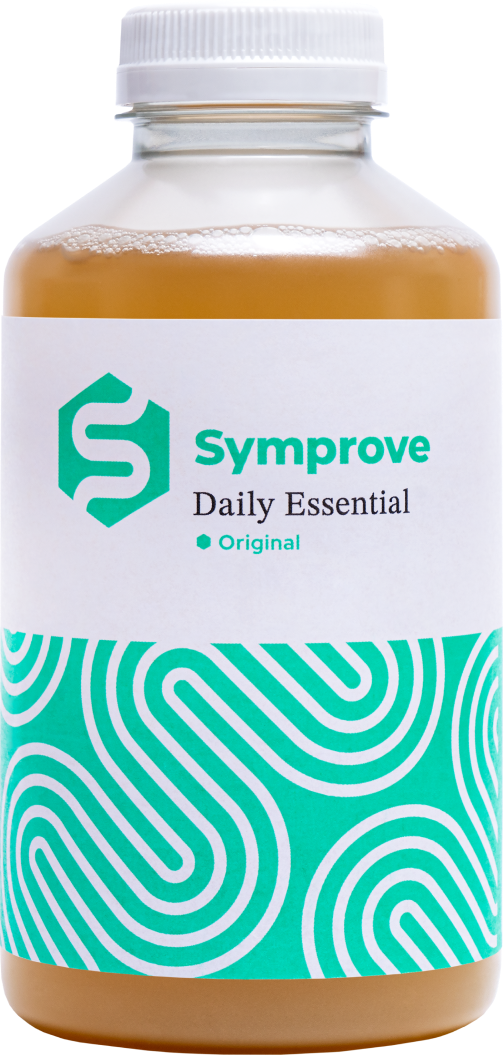Research suggests that disruptions in the gut-brain axis may contribute to the development and progression of Parkinson’s disease (PD). This article will explore the gut-brain axis in relation to PD and summarise current evidence-based interventions to optimise management of PD.
The Gut-Brain Axis
The gut-brain axis is a bidirectional communication network in the human body that links the gastrointestinal tract and the central nervous system (your brain and spinal cord). This allows the gut and brain to influence each other through neural, hormonal, and immune pathways. (1,2) The gut-brain axis consists of three main components:
- Gut Microbiota: The gut is home to trillions of microorganisms, collectively known as the gut microbiota. These microbes play a crucial role in digestion, immune function, and the production of neurotransmitters such as serotonin and dopamine (3,4)
- Vagus Nerve: The vagus nerve acts as a communication highway between the gut and the brain. It transmits signals from the gut to the brain and vice versa, influencing both digestive and neurological functions (5)
- Enteric Nervous System: Often referred to as the “second brain,” the enteric nervous system is a network of neurons embedded in the gut wall. It controls digestive processes and communicates with the central nervous system to regulate gut function and overall health (6)
Considerable research has highlighted the importance of the gut-brain axis for a multitude of factors, including digestive health, supporting the immune system, emotional regulation, and cognitive functioning. (7,8)
A breakdown of communication in the gut-brain axis can be caused by a range of factors, including poor diet, chronic stress, infections, and environmental influences. (2) This can increase the risk of conditions such as irritable bowel syndrome (IBS), Crohn’s disease, and ulcerative colitis. (9) Additionally, changes in mental health and cognition can occur via the Enteric Nervous System (ENS), which usually helps to regulate and control neurotransmitter levels. Approximately 90% of serotonin, a key neurotransmitter for mood regulation, is produced in the ENS. (10,11) This explains why gut health is so closely linked to mental health and why imbalances in the gut microbiota can contribute to conditions like depression and anxiety. Another important neurotransmitter produced by the ENS is dopamine, which is crucial for motivation, attention, and coordination of movement. (12) A reduction of dopamine in the brain is associated with PD.
What is Parkinson’s Disease?
PD is a progressive neurodegenerative condition that affects approximately 8.5 million people worldwide. (13) It is characterised by the loss of dopaminergic (dopamine-producing) neurons in a region of the brain called the substantia nigra. Neurons in this part of the brain die due to an aggregation of a protein called alpha-synuclein, which disrupts normal cellular functioning. In PD, the reduction of dopamine can result in motor symptoms such as tremors, rigidity, bradykinesia (slowness of movement), and postural instability. (14) Besides visible motor symptoms, PD patients often experience a range of less visible non-motor symptoms, including cognitive impairment, mood disorders, sleep disturbances, and gastrointestinal issues such as constipation. Notably, constipation can occur decades before the onset of motor symptoms in PD and can therefore be considered an early indicator of the condition. (15)
Parkinson’s Disease and the Gut-Brain Axis
Research has highlighted the potential interaction of the gut-brain axis in the development and progression of PD. Studies have found that people with PD often have a reduction in beneficial bacteria in the gut compared to those without PD. (16) This can lead to inflammation and in some cases, increases in intestinal permeability. This condition is where the intestinal barrier is compromised, allowing undigested food and toxins to leak into the bloodstream and can trigger an immune response, which, over time, may lead to autoimmune diseases such as type 1 diabetes and multiple sclerosis. (17) In addition, there is some evidence suggesting that aggregated alpha-synuclein may originate in the gut and travel to the brain via the vagus nerve. (18)
Gut-Centric Interventions
There is considerable research that highlights the importance of maintaining a healthy link between the gut and brain. This can not only reduce the likelihood of developing neurodegenerative conditions but can also slow progression of PD and help alleviate some symptoms. Below are some considerations for improving and maintaining gut health.
Dietary Changes
Diet plays a crucial role in maintaining a healthy gut microbiota, which in turn may influence the progression of PD. Adopting a diet rich in fibre, prebiotics, and probiotics can support the growth of beneficial gut bacteria.
The Mediterranean diet, for example, has been associated with improved cognitive function and reduced inflammation, both of which are critical in managing PD symptoms. (19) The diet’s emphasis on fibre helps to feed beneficial bacteria in the gut, promoting a balanced microbiota and reducing gut inflammation. Such dietary patterns may also enhance the production of short-chain fatty acids (SCFAs), which have been shown to have neuroprotective effects. (20)
Probiotics
Supplementing with probiotics is another strategy being explored to restore and maintain a healthy gut microbiota balance in PD patients. Probiotics are live beneficial bacteria that can significantly improve gut health.
Studies suggest that specific strains of probiotics, such as Lactobacillus and Bifidobacterium, may help improve motor and non-motor symptoms in PD. (21) For instance, research has shown that probiotics can reduce constipation, a common non-motor symptom in PD, by enhancing gut motility and altering the composition of the gut microbiota. (22)
Lifestyle changes
Lifestyle factors such as regular exercise, stress management, and adequate sleep are essential for maintaining gut health and overall well-being. Physical activity, in particular, has been shown to have a positive impact on the composition of gut microbiota. Regular exercise can increase the diversity of gut bacteria and promote the growth of bacteria that produce short chain fatty acids. (23)
Stress management is another important consideration, as chronic stress can negatively affect gut health by disrupting the gut-brain axis. Techniques such as mindfulness, meditation, and yoga can help reduce stress levels, thereby supporting a healthier gut. (24) Ensuring adequate sleep is also vital, as sleep disturbances are common in PD and can further exacerbate gut health issues. Poor sleep can disrupt circadian rhythms, which are important for gut microbiota balance and overall health. (25)
Summary
The gut-brain axis plays a crucial role in various physiological and psychological processes, including mood regulation, cognitive function, and overall health. Disruptions to this communication pathway are increasingly linked to some neurological conditions such as PD. Recent findings suggest that gut health, particularly the composition and balance of gut microbiota, may influence the development and progression of PD. Given this emerging understanding, therapeutic interventions targeting gut health, such as dietary changes, probiotic supplementation, and lifestyle modifications, are gaining attention as potential strategies for managing and alleviating symptoms of Parkinson's disease. These approaches not only aim to support gut health but also seek to improve the quality of life for people with PD by addressing both motor and non-motor symptoms. The integration of gut health management into PD treatment protocols holds promise for more comprehensive and effective care.
References:
- Mayer EA, et al. J Neurosci 2014;34(46):15490-15496.
- Cryan JF, et al. Nat Rev Neurosci 2012;13(10):701-712.
- Peterson CT, et al. Clin Exp Immunol 2015;179(3):363-377.
- Sharon G, et al. Cell 2016;167(4):915-932.
- Bonaz B, et al. Front Neurosci 2018;12:49.
- Furness JB. Nat Rev Gastroenterol Hepatol 2012;9(5):286-294.
- Rhee SH, et al. Nat Rev Gastroenterol Hepatol 2009;6(5):306-314.
- Wiertsema SP, et al. Nutrients 2021;13(3):886.
- Shaikh SD, et al. J Clin Med 2023;12(7):2558.
- Appleton J. Integr Med (Encinitas) 2018;17(4):28-32.
- Gershon MD. Trans Am Clin Climatol Assoc 2012;123:268-280.
- Mittal R, et al. J Cell Physiol 2017;232(9):2359-2372.
- Global Burden of Disease Study 2019. Lancet Neurol 2018;17(11):939-953.
- Poewe W, et al. Nat Rev Dis Primers 2017;3:17013.
- Abbott RD, et al. Neurology 2001;57(3):456-462.
- Scheperjans F, et al. Mov Disord 2015;30(3):350-358.
- Mu Q, et al. Front Immunol 2017;8:598.
- Chen M, et al. Int J Mol Sci 2023;24(8):7205.
- Martínez-González MA, et al. Nutrients 2017;9(11):1226.
- Saikachain N, et al. J Neurochem 2023;166(2):201-214.
- Westfall S, et al. Cell Mol Life Sci 2017;74(20):3769-3787.
- Cassani E, et al. Minerva Gastroenterol Dietol 2011;57(2):117-121.
- Monda V, et al. Oxid Med Cell Longev 2017;2017:3831972.
- Foster JA, et al. Neurobiol Stress 2017;7:124-136.
- Frazier K, et al. Trends Endocrinol Metab 2020;31(1):25-36.



